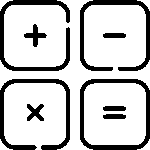Lower secondary education

In Lithuania, the lower secondary education starts from the 5th form and continues for 6 years until the 10th form. At „Vitlio licėjus“, lower secondary education is built on the foundation of the Lithuanian National Curriculum and enriched by the IB MYP, seamlessly integrating global best practices and innovative teaching methodologies.
We place particular emphasis on:
- Interdisciplinary Learning, helping pupils to discover the vital connections between different fields of study.
- Project-Based and Inquiry-Led Learning, nurturing independence, creativity, and essential teamwork skills.
- Monitoring Personal Progress, where each pupil’s individual pace and goals are recognised, supported, and celebrated.
- The Development of Social, Emotional, and Civic Competencies, as we firmly believe that true success is founded not only on academic achievement but on strong values.
„Vitlio Licėjus“ is a private school where engineering thinking is not simply a subject — it is a way of understanding the world, solving problems, and creating meaningful change.
From an early age, engineering education is thoughtfully and progressively integrated into every stage of learning, from the primary years through to lower secondary education. Our mission is to foster curiosity, creativity, logical reasoning, and the ability to apply knowledge practically.
Our Engineering Education Distinctives:
- Project-Based Learning: Pupils design and build real engineering solutions — from prototypes to fully functional models.
- Interdisciplinary Integration: Mathematics, Science, Technology, and IT are woven into a cohesive and dynamic learning experience.
- Problem Solving: Pupils are empowered to identify challenges, develop ideas, test solutions, and refine outcomes.
- Advanced Technology Use: From 3D modelling and robotics to electronics and coding, pupils work with leading-edge tools.
- Sustainability and Ethically Responsible Innovation: We educate engineers who are deeply committed to the environment, ethical responsibility, and human wellbeing.
We follow modern STEAM education methodologies, collaborate with leading universities and industry partners, and invite our pupils to experience the true joy of creativity — applying their talents to real-world challenges.
Engineering education at our Lyceum is far more than preparation for a profession — it is preparation for life: a mindset of exploration, innovation, action, and a lifelong pursuit of discovery.
What subjects are taught in 5-10 grades?

Languages
- Lithuanian language
- English language
- Spanish language
- French language
- German language

Life sciences
- Biology
- English science
- Physics
- Chemistry

Mathematics
- Mathematics
- English Math
- IT

Engineering pathways
- Engineering
- STEAM projects
- Media engineering
- Robotics
- Electronics
- Drone engineering

Arts
- Visual arts
- Music

Social education
- History
- Geography
- Moral education
- Economics

Wellbeing
- Psychology
- Physical education
Join “Vitlis” Today!
Give your child a vibrant, forward-looking education in an inspiring environment! Complete the application form and we’ll be in touch within 1 business day.